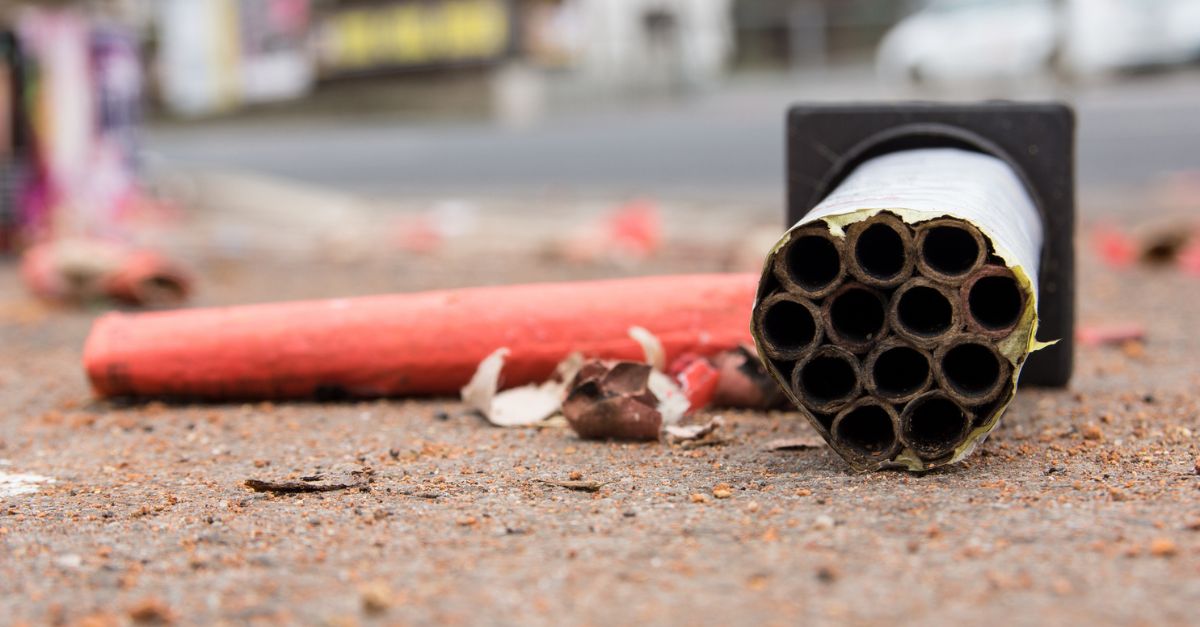When we think of summertime celebrations, grilled food, cold drinks, and fireworks often come to mind. But while holidays like the Fourth of July might seem perfect for a sparkly evening show, the reality is that a star-spangled display can quickly turn disastrous. Here, we’re sharing some of the most common firework injuries and how to keep your family safe this season.
How Much Damage Can a Firework Do to a Person?
If you’ve seen a professional firework display firsthand, you know just how massive these aerial explosives can be. You can also probably imagine the effect they might have when colliding with a person.
Flesh and bones are simply no match for ignited gunpowder. The extent of injuries from fireworks can range from mild to severe, depending on the type of projectile and your distance from the explosion. The least damaging effects could include burns and abrasions, while more serious injuries may result in blindness, amputations, and even death.
In general, while an open-air setting offers ample space for fireworks to take flight, crowded areas with lots of people are simply not a safe environment for them.
The Most Common Firework Injuries
Unfortunately, thousands of firework injuries take place every Fourth of July, many involving teens and children. Here are some of the most common incidents reported:
- Hand and Finger Injuries: Burns to the hands and fingers are the most common injuries caused by fireworks, but deep cuts, broken bones, and amputations of these extremities can also occur.
- Leg Injuries: Injuries to the lower body are also common, since explosives can travel quickly across the ground.
- Head and Facial Trauma: A significant portion of firework-related trauma occurs on the head and face. In this area, a blast can cause irreversible damage, including blindness and hearing loss—not to mention lasting injuries from broken bones and severe burns.
Keep in mind that 65 percent of firework injury victims are bystanders. In other words, you don’t have to be handling these dangerous devices directly to be at risk of great harm. Simply being around fireworks is hazardous to anyone, especially if you have young children who don’t fully understand their danger.
Tips for Safe Firework Enjoyment This Summer
The simplest and safest way to prevent firework injuries this Fourth of July (or any other time of year) is to avoid being around them. The good news is that many displays can be seen for miles, so if you look forward to these annual shows, you don’t need a front-row seat to watch the magic unfold.
Should you choose to watch fireworks, here’s how you and your loved ones can be safe spectators:
- Attend professional displays instead of informal gatherings.
- Watch from a safe distance. Ground-based displays like fountains should be viewed from 35 feet away or more, while aerial projections call for at least 150 feet of distance.
- Skip the sparklers. Although they may seem harmless, they still create sparks that can cause burns. Give children safe alternatives like bubbles or glow sticks to take part in the festivities.
Lastly, should you or a loved one experience a firework injury, be sure to seek immediate medical care. Don’t try to self-treat these wounds, as they often require specialty attention.
Choose YourTown Health’s QuickCare Clinic for Your Urgent Medical Needs
As your partners in wellness, YourTown Health is always here for both emergency and non-emergency care, but we encourage you to stay safe and enjoy your favorite summer activities mindfully. Should you or a loved one need prompt medical attention for a concern that isn’t life-threatening or traumatic, visit our QuickCare Clinic in Palmetto, Georgia for immediate aid. See a list of services available at our convenient walk-in clinic here, or reach us by calling 770-463-4644.

